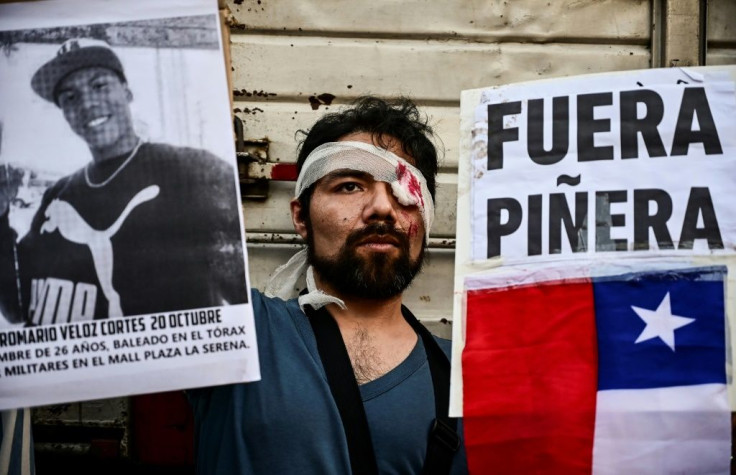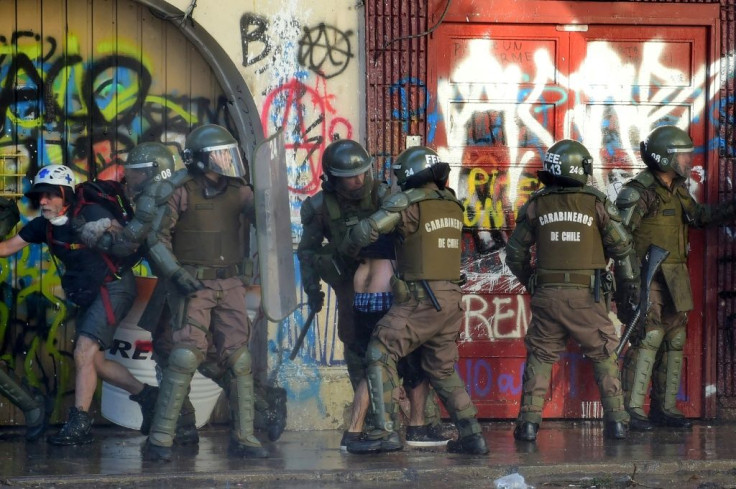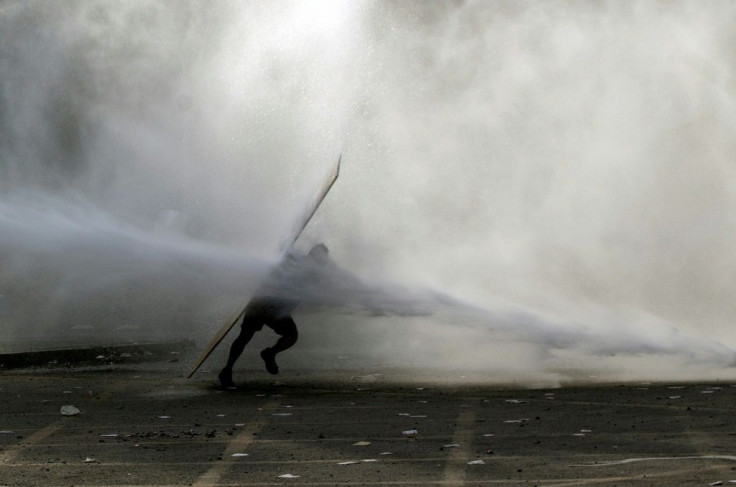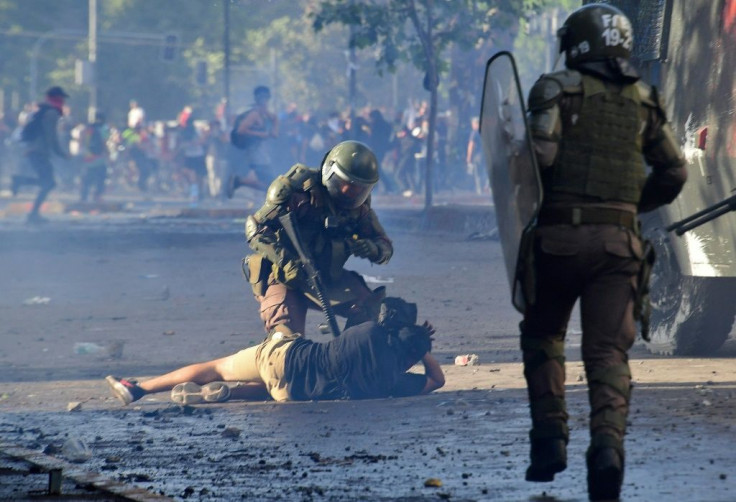Chile Police Response To Protests 'Repressive': UN
Chilean police responded to recent mass protests in a "fundamentally repressive manner," resulting in serious abuses including unlawful killings and torture, UN investigators said Friday.
In a fresh report, the UN rights office said that during the recent mass protests and state of emergency in Chile, the police and army violated international rights norms and standards for crowd control and use of force.
"The police has regularly failed to distinguish between people demonstrating peacefully and violent protesters," the report said, warning that "excessive or unnecessary use of force" had in some cases resulted in deaths and severe injuries.

Chile's human rights minister Lorena Recabarren voiced Santiago's "regret" over the complaints, but said they should be seen in context of the violence.
Chile's crisis erupted in mid-October over metro fare hikes but quickly escalated into the most severe outbreak of social unrest since the end of the dictatorship of Augusto Pinochet nearly 30 years ago.
Furious Chileans have taken to the streets to register their anger over inequality and particularly to vent at the elites that control much of the country's wealth.

Amid alarming reports of killings and violence, UN High Commissioner for Human Rights and former Chilean president Michelle Bachelet decided in October to send a team to investigate.
The investigators, who visited the country from October 30 through November 22, concluded in their report that "there are reasonable grounds to believe that... a high number of serious human rights violations have been committed."
"The management of assemblies by the police has been carried out in a fundamentally repressive manner," mission chief Imma Guerras-Delgado told reporters in Geneva.
During their mission, the investigators documented 113 cases of torture and ill-treatment and 24 cases of sexual violence, committed by police and army forces.

Recabarren, responsible for Chile's official response to the report, said each complaint "is being investigated and will be sanctioned."
But it was necessary to "clarify and specify" issues not adequately represented in the UN report, which contained erroneous and outdated information, she said.
"Unexpected and unprecedented violence" had developed in parallel with peaceful protests, she said.

"It was because of that situation of violence and not the peaceful demonstrations -- as some have tried to convey -- why it was decided to decree the state of constitutional exception" whereby troops were deployed.
"That decision was not taken in a vacuum and without context," Recabarren said.
Chile's public prosecutor's office has said it is investigating 26 deaths in the context of the protests, and the UN team said it had verified information concerning four of the cases.
These included "four cases of arbitrary deprivation of life and unlawful death involving state agents," mission chief Imma Guerras-Delgado told reporters in Geneva.
The investigators said two of those cases involved people who were shot with live ammunition, despite posing no risk to the lives of police or military officers and not participating in acts of violence.
This could "amount to an extrajudicial execution," Guerras-Delgado said.
Chile's justice ministry has also said more than 4,900 people were injured during the protests, including nearly 2,800 police officers.
The UN investigators meanwhile pointed to other sources reporting as many as 12,000 people wounded.
Their report especially decried the "unnecessary and disproportionate use of less-lethal weapons" such as anti-riot shotguns and tear gas canisters, which had left roughly 350 people with severe eye injuries.
The investigators urged Chile to "immediately end the indiscriminate use of anti-riot shotguns to control demonstrations," and to use tear gas only "when strictly necessary."
The investigators also reported that more than 28,000 people had been detained between October 18 and December 6, many of them arbitrarily, but that the great majority had been released.
Guerras-Delgado pointed to official Chilean figures showing that more than 1,600 remained in detention.
© Copyright AFP 2024. All rights reserved.











